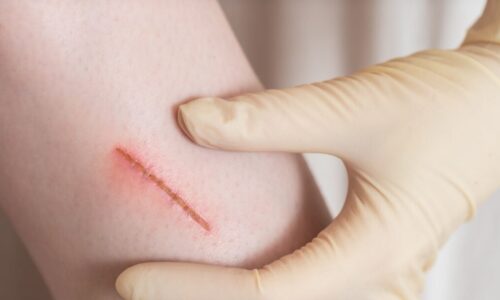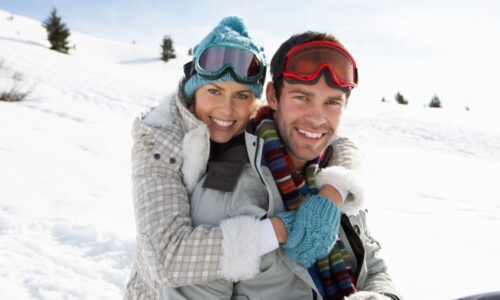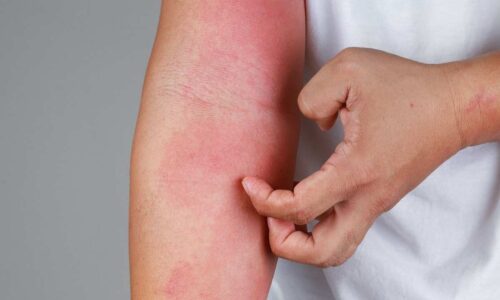Summer Safety |
Summer is the best time of year to enjoy the great outdoors. Whether you’re swimming, barbecuing, or hiking wooded trails, some basic safety precautions should be followed to avoid falling ill. Topping the list are hot temperatures that can pose a hazard for even the healthiest of people — affecting the body’s ability to keep cool and possibly leading to a host of complications. Reduce your risk for sunburn, skin cancer, and other damage caused by the sun this summer with helpful tips from Dr. Gary Lai, Chief of Emergency Medicine at Broward Health.
Transcript
As summer progresses, people are eager to be outside and take advantage of the warm weather. However, soaring temperatures and harsh sunlight can create health hazards and even leisurely activities can pose hidden dangers. On an episode of Doctor Q & A, Dr. Gary Lai, Chief of Emergency Medicine at Broward Health in Coral Springs, answers questions about the potential dangers that summer brings.
Although summer weather is beautiful, especially in South Florida, Dr. Lai warns people to avoid the hours where the sun’s strength is at its peak to mitigate the risk of heat exhaustion and heat stroke. “Try to schedule your activities for the morning or later in the afternoon and make sure to stay hydrated,” he suggests.
Some telltale signs of heat exhaustion are headaches, nausea, profuse sweating, and muscle cramps. Dr. Lai recommends that if you are starting to feel these symptoms, stop your activity, look for some shade, take off your sweaty clothes, continue to hydrate, and do whatever it takes to cool off. If you start feeling confused or experience seizure-like convulsions, that is when you really need to head to the emergency room.
Sometimes it can be hard to tell if you are dehydrated, especially if you are not doing any strenuous physical activity and are just sitting or walking around. You should always be on the lookout for unexpected cramping in your legs or arms because it probably means you are dehydrated.
Hydration is especially important in South Florida, where not only are temperatures high, but humidity levels can get above 75 percent, which decreases the chance of your body sweating to cool off. Without that, overheating becomes far more likely. “If you don’t stay hydrated or replenish the salts that you lose, that’s when you start developing muscle cramping,” Dr. Lai explains. He recommends that people keep a water bottle by them, even if they are not doing any exercise and are just running errands. Even getting in and out of the car during the summer can be quite stressful for the body because of how hot cars get. “A lot of times people may underestimate, they might think, ‘hey the outside temperature is only about 80 degrees,’ so it’s not like a scorching 100-degree day. On an 80-degree day it can easily reach temperatures above, you know, 112 Fahrenheit very quickly,” Dr. Lai cautions. For any activity outdoors during the summer, hydration is key.
Heat can also exacerbate any preexisting migraine conditions, especially when you are drinking caffeine. Dr. Lai recommends that people limit their caffeine intake when they are outside because it can affect your heart rate. If you have a persistently fast heart rate in combination with a body that is already overheating from being outside, migraines and headaches can occur with greater frequency.
Besides water, Dr. Lai recommends people to drink balanced electrolyte solutions on days where you are sweating a lot and doing strenuous activity. Typically, though, if the activity is not so rigorous, having a balanced meal and plenty of water will keep your salt levels where they should be. One kind of drink that you should be cautious of drinking in hot weather is alcohol. While drinking at the beach is a South Florida tradition, alcohol can cause severe dehydration without you noticing. Alcohol in combination with prolonged heat exposure acts like a diuretic, where you lose more liquids after drinking it. Drinking in the heat can lead to headaches, nausea, muscle cramps, and even vomiting.
You also must be cautious in how you handle and package food that you are bringing to the beach. Due to the heat, food can easily spoil if not taken care of properly. Dr. Lai recommends that you keep your perishables cold, such as meats and perishables. He also says to make sure to wash your hands in between touching different foods as to not cross-contaminate, especially with meat. You also want to affirm that your meat is cooked thoroughly because in hot weather bacteria can multiply and grow faster, which is why you need to take extra precautions with meat. Put things away when you are not using them and dispose of food correctly, so nothing sits out in the sun and potentially harms someone else.
The interviewer asks Dr. Lai, other than wearing sunscreen, what are some ways to protect the skin from too much sun? Dr. Lai mentions again that you should always try to avoid peak hours of sunlight and look for shade. You can also wear loose fitting clothing or clothing that give you UV protection. While these are all helpful precautions you can take to avoid skin damage, the best thing you can do is wear sunscreen. Your sunscreen should be SPF 45 or higher and make sure you reapply after you get into water or sweat excessively. “If you put on sunscreen with an SPF of like 60 or 70 and all of a sudden you jump in the pool or you jump in the ocean, most washes off right away,” Dr. Lai says. If you don’t reapply on a regular basis, you are not going to have the protection of the sunscreen. Dr. Lai also warns that if you have recently had an operation on your skin, you should avoid the sun altogether. How long you should avoid the sun after an operation is best decided by the surgeon, but you do not want to cause unnecessary skin damage to a surgery wound.
Another health concern that is not frequently discussed is the risk of photosensitive reactions that certain medications can give you. “You take your regular medication, but you head out in the sun, and it can accelerate the sunburn process when you typically wouldn’t have had a reaction to that amount of sun,” Dr. Lai elaborates. Some of the medicines that cause these kinds of reactions are pretty common, antihistamines like Benadryl, or antibiotics like sulfa medications or tetracycline. Diuretic medicines like thiazides or hydrochlorothiazide can also put you at risk for sun burns.
The summer can also bring increased instances of asthma attacks because of more pollen and grass in the air. Dr. Lai encourages asthmatics to keep their rescue inhaler on hand and stay on top of their maintenance allergy medications to prevent any serious asthma attacks from occurring.
The interviewer mentions that fourth of July can also be a dangerous time. According to the Consumer Product Safety Commission, in 2021 there were 10,000 emergency room visits caused by fireworks alone, not including any accidents that come from outdoor grilling. The interviewer asks Dr. Lai, what advice would he give people to be safer while enjoying their fourth of July activities. Dr. Lai says people should use common sense and practice basic fire safety procedures. For grilling, people should be wearing heat protective gloves to handle hot, metal utensils. When you are lighting fireworks Dr. Lai warns folks to not do anything out of the ordinary. “Don’t light a bottle rocket in your hand and try to set it off, or these M80s and stuff. That’s where we see these big traumatic injuries,” Dr. Lai says. By not using the fireworks as intended, you are running the risk of harming yourself and ending up in the emergency room.
Watch the full segment of Dr. Gary Lai answering questions about the potential dangers of summer, here: https://youtu.be/QVQihqNlt2o
4th of July Safety Tips
“Dehydration in Summer: Symptoms, Causes & Prevention
How to Avoid Summer Migraines
Heat Illness: Prevention, Symptoms & Treatment
Tips to Stay Safe in the Sun: From Sunscreen to Sunglasses








